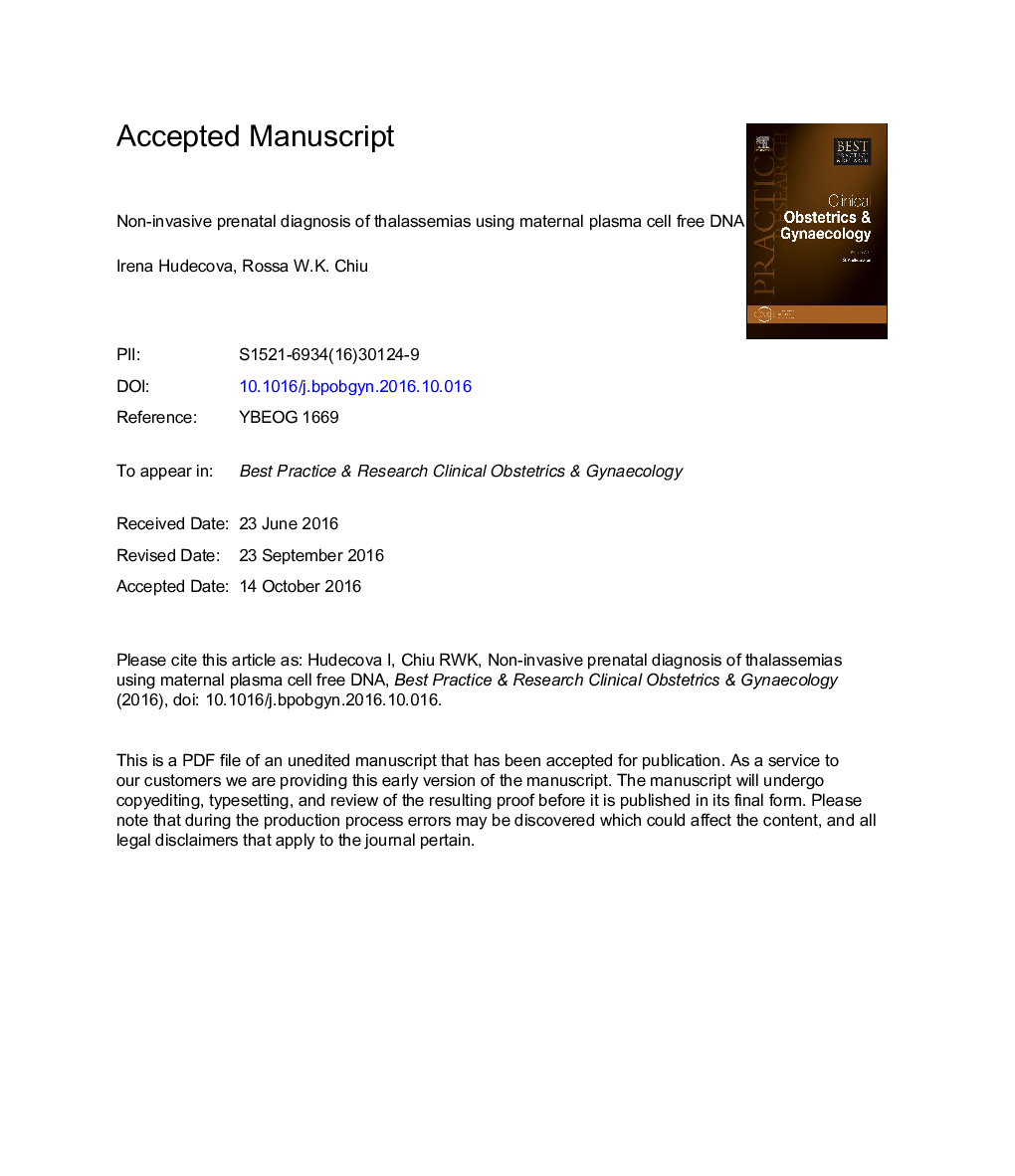| Article ID | Journal | Published Year | Pages | File Type |
|---|---|---|---|---|
| 5691710 | Best Practice & Research Clinical Obstetrics & Gynaecology | 2017 | 35 Pages |
Abstract
Non-invasive prenatal testing (NIPT) using maternal plasma cell free DNA has already reshaped the existing prenatal care system for pregnancies screened for common chromosomal aneuploidies. On the other hand, much progress has been made in developing NIPT for monogenic diseases. Thalassemia served as a disease model to develop strategies for NIPT of monogenic traits. One approach focuses on the detection or exclusion of paternally inherited fetal mutations that are absent from the mother's genome. The assessment of maternally inherited mutations in maternal plasma requires the use of highly sensitive DNA quantification techniques. The relative mutation dosage (RMD) or the relative haplotype dosage (RHDO) approach provides a powerful tool to elucidate the fetal mutational status even in populations with lower genetic diversity, where the parents share the same mutation. With expected decrease in sequencing costs, NIPT for monogenic diseases is becoming an affordable option in prenatal care.
Keywords
Related Topics
Health Sciences
Medicine and Dentistry
Obstetrics, Gynecology and Women's Health
Authors
Irena PhD, Rossa W.K. (Prof),
